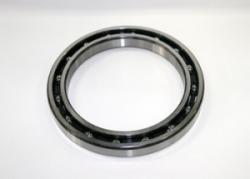
- Contact:Minister Xu
- Mobile:13841408476
- Tel:024-44837288
- Fax:024-44837004
- E-mail:xuming58@126.com
- Web:www.jinpiaoxiang.com
- Address:No.110 XiangHuai Road
Benxi Economic Development Zone
Liaoning Province
NSK Ball bearings: cut friction by up to 65 per cent
15 Jan,2019
NSK has developed low-torque ball bearings featuring a 50-65 per cent improvement in frictional loss compared to conventional bearings. These were designed specifically for use in hybrid vehicles and the company expects annual sales to be worth more than 3billion yen by 2013.
In recent years, demand for hybrid vehicles has been rising rapidly thanks to the low fuel consumption and low emissions realised through a more efficient integration of the engine and electric motor. In order to improve fuel efficiency further, there is a growing need to reduce torque loss in the bearings used in the transmissions (drive trains) of hybrid cars. NSK has met this need with its new low-torque bearings, which reduce frictional losses. The new product will be featured first in Toyota's recently unveiled Prius.

To date, most observers considered it too difficult to achieve further reductions in the torque loss of ball bearings. Despite this, NSK has found a way to cut torque by 50–65 per cent compared to existing product by implementing the innovations described below.
The number of balls has been reduced and ball diameters, race dimensions and clearances have been optimised, all of which has minimises rolling friction losses. Another key factor in this success was NSK's development of new manufacturing processes that overcame conventional hurdles to reduce the number of balls.
Losses have been reduced by agitating lubrication oils during operation via the introduction of specially shaped resin cages. NSK has achieved compactness, lightness and low torque for automobiles via its four core technologies (tribology, materials, analysis and mechatronics), which it has cultivated for 90 years, and is determined to push forward with the development of products that will improve the fuel efficiency of automobiles in the future.









